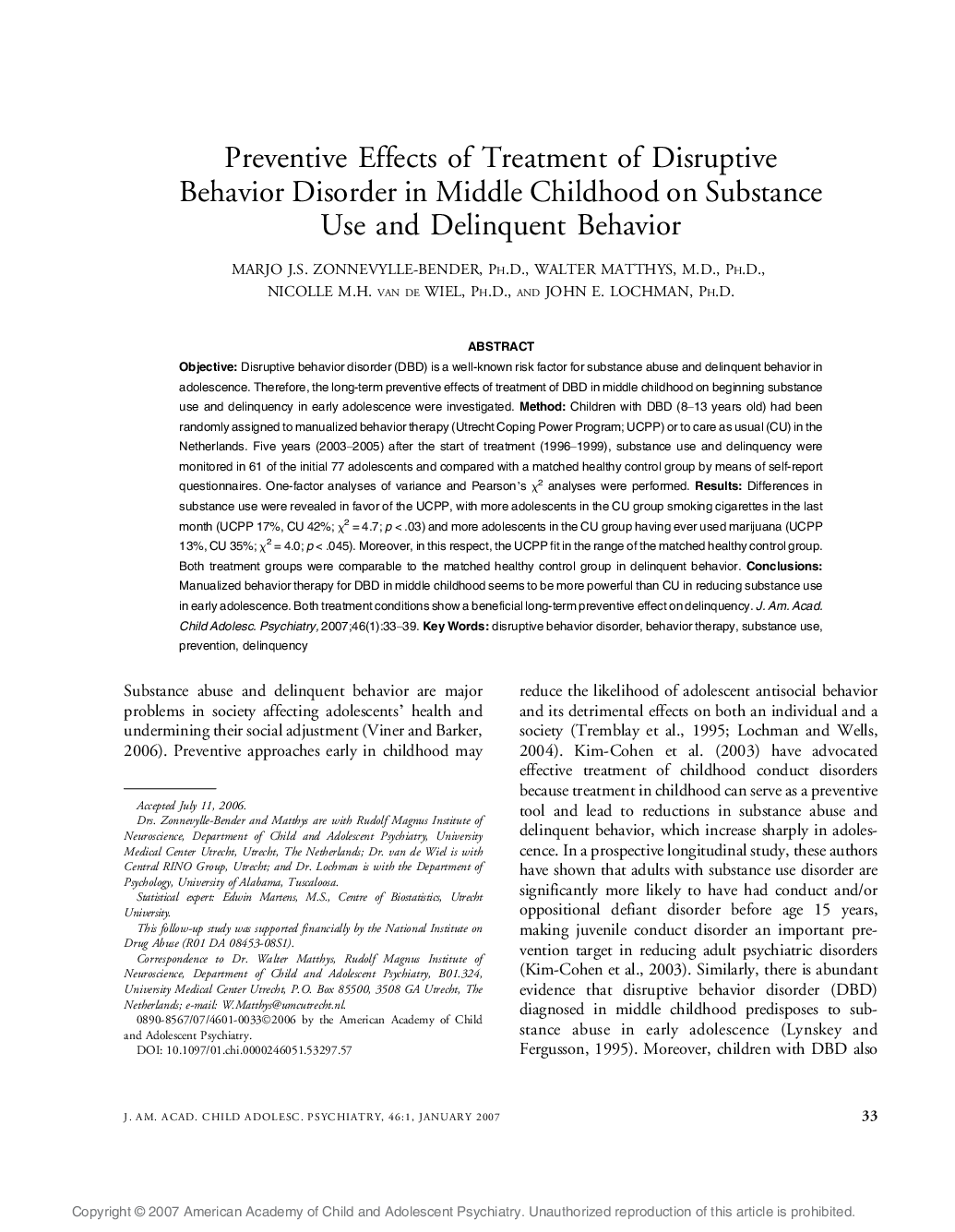| Article ID | Journal | Published Year | Pages | File Type |
|---|---|---|---|---|
| 325871 | Journal of the American Academy of Child & Adolescent Psychiatry | 2007 | 7 Pages |
ABSTRACTObjectiveDisruptive behavior disorder (DBD) is a well-known risk factor for substance abuse and delinquent behavior in adolescence. Therefore, the long-term preventive effects of treatment of DBD in middle childhood on beginning substance use and delinquency in early adolescence were investigated.MethodChildren with DBD (8-13 years old) had been randomly assigned to manualized behavior therapy (Utrecht Coping Power Program; UCPP) or to care as usual (CU) in the Netherlands. Five years (2003-2005) after the start of treatment (1996-1999), substance use and delinquency were monitored in 61 of the initial 77 adolescents and compared with a matched healthy control group by means of self-report questionnaires. One-factor analyses of variance and Pearson's χ2 analyses were performed.ResultsDifferences in substance use were revealed in favor of the UCPP, with more adolescents in the CU group smoking cigarettes in the last month (UCPP 17%, CU 42%; χ2 = 4.7; p < .03) and more adolescents in the CU group having ever used marijuana (UCPP 13%, CU 35%; χ2 = 4.0; p < .045). Moreover, in this respect, the UCPP fit in the range of the matched healthy control group. Both treatment groups were comparable to the matched healthy control group in delinquent behavior.ConclusionsManualized behavior therapy for DBD in middle childhood seems to be more powerful than CU in reducing substance use in early adolescence. Both treatment conditions show a beneficial long-term preventive effect on delinquency.
